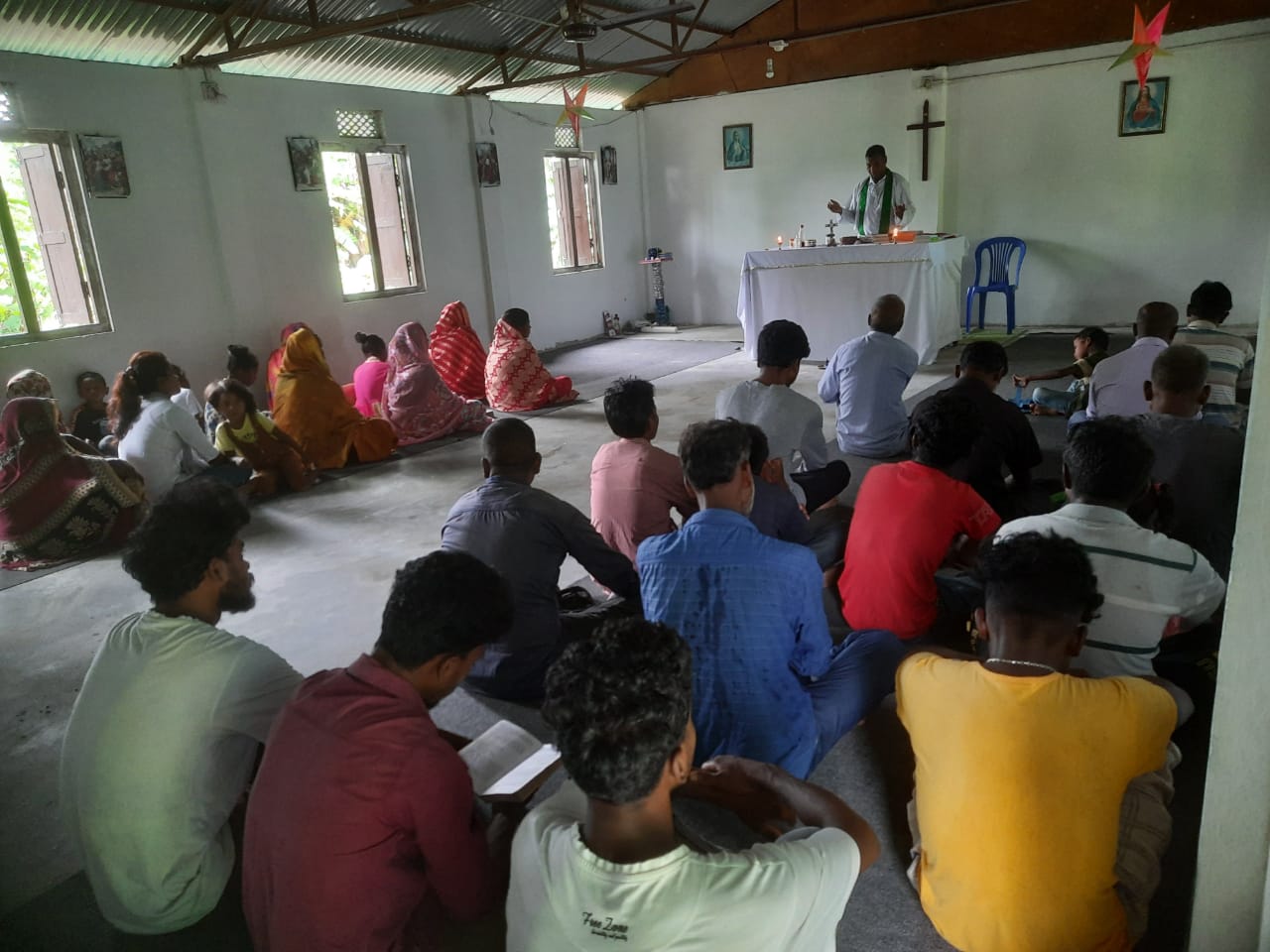Christianity in Nepal dates back to the 16th century and, until 1983, Nepal was part of various Indian dioceses. On the invitation of Nepalese kings, Capuchin priests arrived in Kathmandu Valley in 1715, evangelized and built churches. After the unification of Nepal as a Hindu kingdom, all Christians were expelled in 1769 and they settled in Bihar, India. Christian missionaries returned to Nepal after democracy was established in 1951. The Jesuits established educational institutes, but evangelization was restricted. The Nepal Catholic mission was officially established in 1983. Protestant and Evangelical churches have a strong presence in Nepal through their educational, health care and social development ministries. There are 1.5 million Christians, including about 8,000 Catholics, out of 29 million people in this Hindu-majority country. Despite their vital contributions to society, Christians in Nepal face various forms of persecution.
B.P. Khanal, 53 is an elder of The Lord’s Assembly Church and principal of Nepal Korea International College in Kathmandu. He is the coordinator of Inter-faith Dialogue at inter-denominational forum, Nepal Christian Society, and chairman of the Central Committee of the Janajagaran Party. He is the author of 18 books and writes regularly for national media. Khanal spoke to Aid to the Church in Need about faith, challenges, and persecution of Christians as well as the recent arrest of two Korean Catholic missionary nuns on alleged illegal conversion charges.
What is your take on the arrest of the two missionary nuns from Korea?
“The arrest of two Korean missionary nuns is frustrating and unacceptable. Most cases of arresting and putting Christians behind bars are part of a well-designed scheme in Nepal, the exploitation of the anti-conversion law, which makes conversion a punishable offense. This anti-conversion law violates human rights.
“The Catholic leadership is doing its best to get the nuns released. We are waiting to help upon being asked. If not, our prayer is always there to ask for heavenly intervention. We have come to know about incident almost a month later. Church authorities wanted to deal with it by themselves, without making it public. My observation is that such cases must not be hidden. Human rights defenders, media and political leaders should come together to raise their voice. All should know how cunningly the law is being exploited and how to take safety measures.
Have Christians been persecuted from their very arrival in the country?
There is no conflict between the faiths in Nepal, but conflicts arise from political ideologies and interests. In early days, Christians faced persecution as Hinduism was the religion of the monarchy and other religions were suppressed. Hindu rulers considered Christianity a subversive religion.
From the dawn of Christianity here, persecution began and everyone who converted to Christianity faced persecution. Because when a person becomes Christian, it means he or she is deserting the original religion, culture, family, and the community. The convert is totally shifting to a different school of thought. This is how persecution against Christians started, particularly at the hands of high caste Hindus. High caste converts faced the most persecution. Lower-caste people and ethnic groups have faced less persecution, because religion and cultural practices had a bigger influence on high-caste people.
Today, persecution of Christians in Nepal has three layers. Firstly, Christians face persecution from people who think Christianity is an outside religion that does not belong here. It often takes place in the family. Secondly, the community starts harassing and marginalizing Christians, often barring them from public service jobs. Christians also face criticism in the media.
A third layer is the state-fueled persecution through legal provisions and restrictions. Nepal is constitutionally a secular democracy, but it has anti-conversion legislation, which makes conversion from the original faith—Hinduism—a punishable offense. The centuries-old criminal law was amended largely with political motivation to target Christians. The propaganda against Christianity is that it a Western religion that welcomes Western powers, which is threating to Nepal’s identity and culture.
What has been the appeal of Christianity?
Christianity came to Nepal with a humanitarian service approach. Evangelization was always blended in with social service. Christians were pioneers in social reform, raising public awareness of social ills, while also providing education, health care and even infrastructure development.
The caste-based system and oppression of lower-caste Hindu people by the upper-castes are one reason behind the rise of Christianity. The caste system triggers discrimination and forbids some people to mingle with others. Low-caste people are not considered equal human beings. They have found a fortress in Christianity because the faith has no discrimination or caste system.

However, we have also seen high-caste people coming to Christ. I come from a high-caste background myself. My father is a Hindu priest. I started following Christ by reading the Bible. No evangelist came to me to preach the Gospel. There are many people like me.
Is there a form of nationalism in Nepal that targets Christianity? The exponential rise of Christianity didn’t go down well with political ideologues, and they not only threaten Christians but also the country’s peaceful life. The emergence of religious-cultural nationalism and extremism in South Asia, such as in India, Pakistan, and Bangladesh, has also crept into Nepal. The extremists spread hatred against other faiths and political parties appease the majority only to get their votes.
Do you have hope for the future?
Despite the oppression, Christianity will continue to grow in Nepal and brighten the future of the country. Because Christianity does not live for itself—it lives for others. Christians are always there to support and comfort people in distress.





